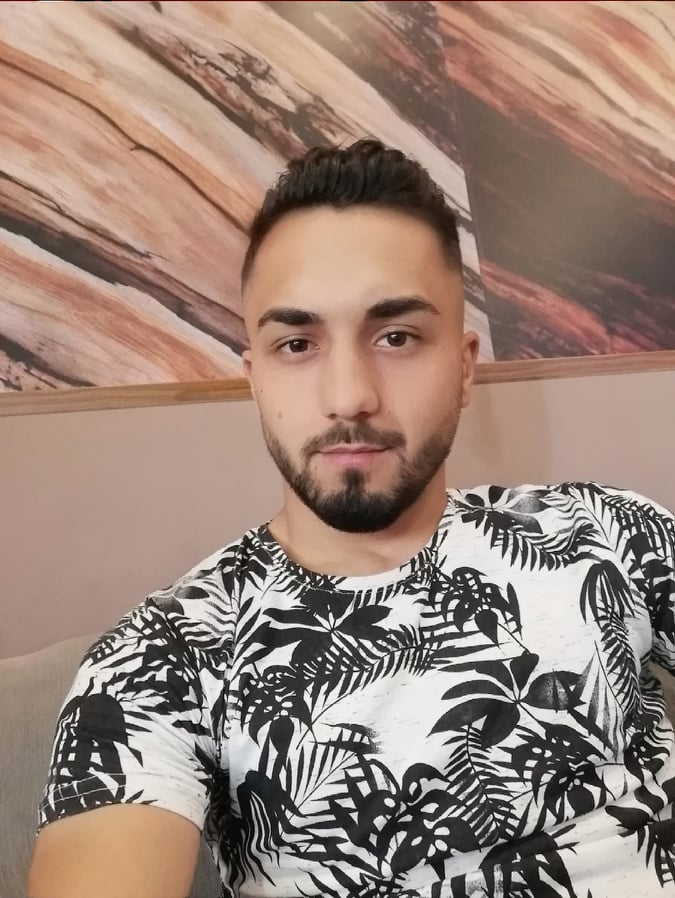
Alex Jurcuț
Alex is a third-year student at the Faculty of Foreign Languages and Literatures, Romani-Hindi section, University of Bucharest. At the same time, Alex, teaches the Romani language and is a school mediator at the school in his native village, Maramures County. He was motivated and inspired to attend the Faculty of Romani and to be a teacher and school mediator, by his uncle who was also a school mediator in his town. His parents also supported him in his educational endeavours, even if none of them had higher education.
But, unfortunately, during his studies Alex distanced himself from his childhood friends, from the Roma community. He found new friends in his high school classmates who treated him equally and did not discriminate him or marginalized him because he was a Roma ,even though he was one of the few Roma in the class and even in school. Alex assumed his ethnicity publicly. He does not treat people according to their ethnic, religious or social affiliation, but treats them according to their behaviour in relation to himself and others.
Now in college, he feels very good because he has several Roma colleagues, where the Romani language is a table matter of studies. Alex also feels motivated by teachers, most of whom are also Roma and he participates with pleasure in both courses and extracurricular activities organized within the faculty. He is also very involved in the Roma civic movement, taking part in various anti-discrimination projects or promoting Roma culture in his community. In addition, as a school mediator he feels how important it is that he is a Roma and is part of the same community, in order to create a strong connection with them and gain their trust.
Eugen Boldijar
Eugen is a third-year student at the Faculty of Foreign Languages and Literatures, Romani-Hindi section, University of Bucharest and a professor of Romani language at the school in his village. Even though he attended another faculty, he chose to attend the university courses in the field of Romani language in order to prove to his colleagues at the department that he too, even if he is a Roma, he can specialize in the field in which he works. Eugene wants to be an example both for his own children but also for the children he works with at school. He in turn was and still is supported by his parents and extended family to continue his studies and develop in this regard; especially that he is one of the few in his community who has chosen this educational path.
Eugene has always publicly assumed his ethnicity because it is important that people respect him as a Roma. Even if, during his educational course, he also faced situations of marginalization and discrimination due to his ethnicity, this did not discourage him, and even motivated him and continued to assume who he was next.
Being a student at Romani and making a comparison with the atmosphere at the first faculty, namely Communication and Public Relations where there were no Roma students or professors, Eugen states that he feels much more at ease and much more encouraged by teachers and colleagues at Romani. So he compered between the two faculties he attended, he realizes every day how important it is to find yourself in the environment in which you study in order to develop yourself and have good results. How important it is to feel understood and to be supported also ethnically and culturally
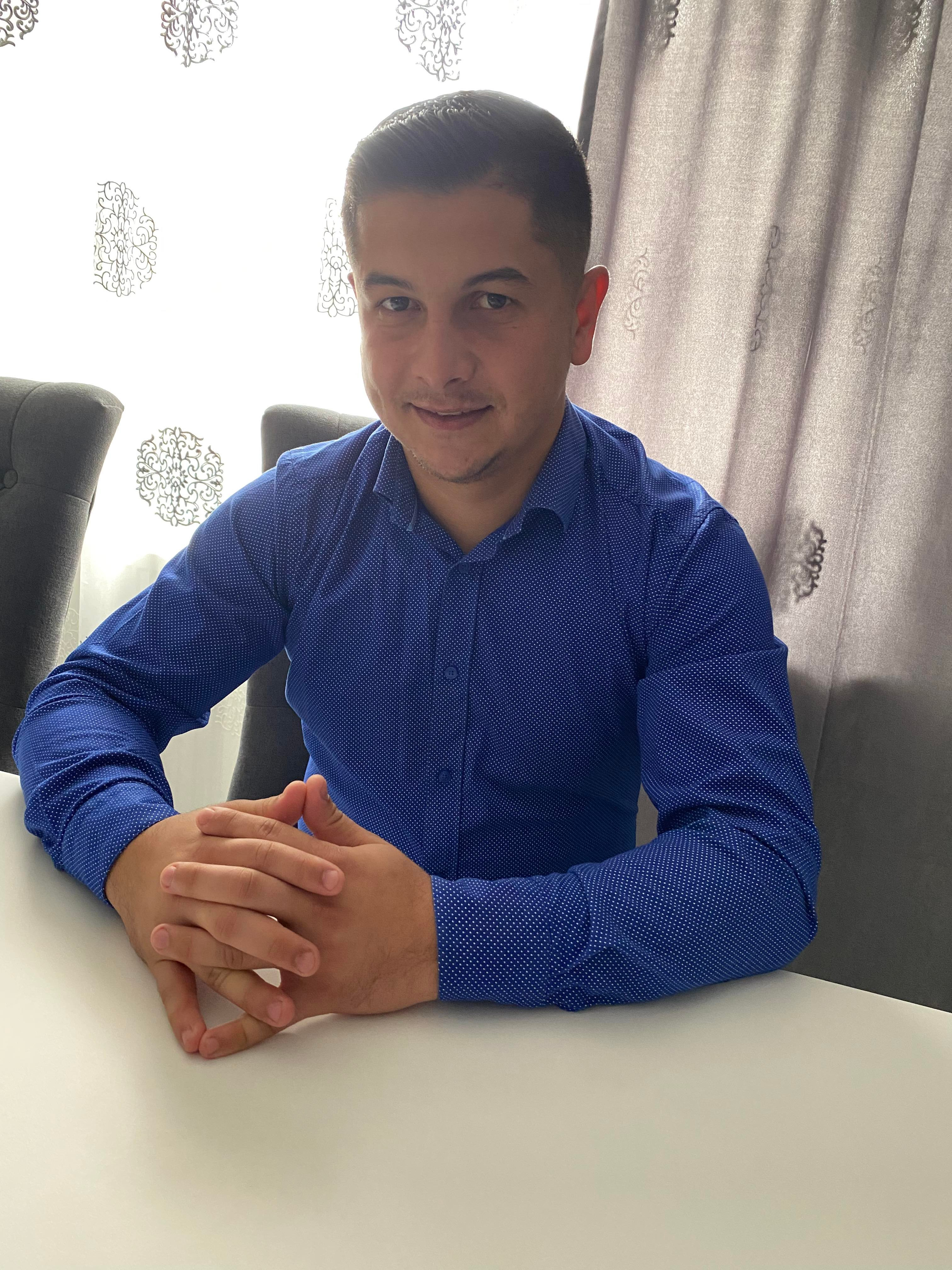
Cristi Curt
Cristi is a graduate of the Faculty of Foreign Languages and Literatures, Romani-Romanian section, University of Bucharest and a former professor of Romani language in his hometown. He even taught at the school in his neighbourhood, where he also taught, a school where 80% of the children are of Roma ethnicity, from the roma lineage like him. Cristi has chosen this educational and professional path because of his primary grade teacher of Romani, who guided him and was by his side throughout his studies, including in college. At first his parents were reluctant to the idea of continuing their studies, especially since in his neighbourhood there are not many young people who chose this path, but now they are very proud of it. Cristi is the first of his lineage to finish college.
He was also an Olympian in Romani in both middle school and high school, even though in high school it was much more difficult for him to go to the Olympics because the Romani language was no longer studied and he had to learn alone or with his former Romani language teacher. Moreover, his non-Roma high school classmates laughed at him for going to Olympiads of Romans, considering this language to be marginal and devoid of complexity. Nor did the teachers in the other subjects encourage him or support him to continue studying this language. However, Cristi did not give up the Romani language and continued his studies in this regard.
During college Cristi had the support of the teachers from Romani language. They stood by him and explained to him every time something was unclear to him or he had difficulty learning, unlike those from The Romanian language he did not feel supported by. But even when he still had a failure at the Romanian, the teachers at Romani encouraged him and cheered him up.
During the faculty, Cristi was also involved in extracurricular activities collaborating with different Associations and Roma institutions, participating in events that were on combating racism or promoting the Romani culture and language. In addition, he also is writing Roma literature, inspired by his own life experiences and literary translations.
Angelica Olmazu
She has been a teacher since 1993 until now at the school in her native village. The school has a predominantly Roma population, which in turn is Roma. The main reason that led her to become a teacher and return to her native village was to give confidence to the Roma children in the community. This confidence was given through the power of her own example of success through education and to be by their side in their educational path.
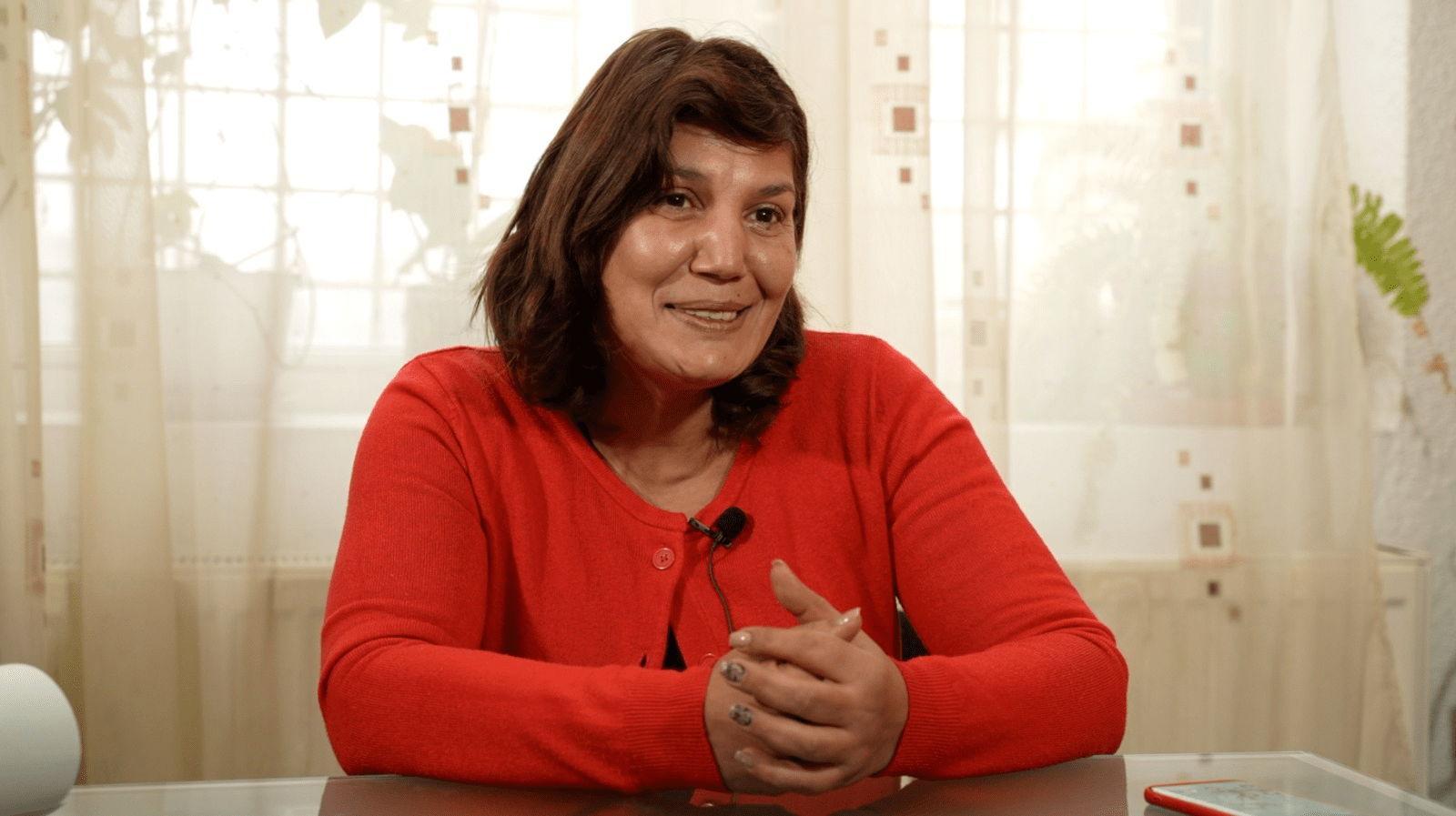
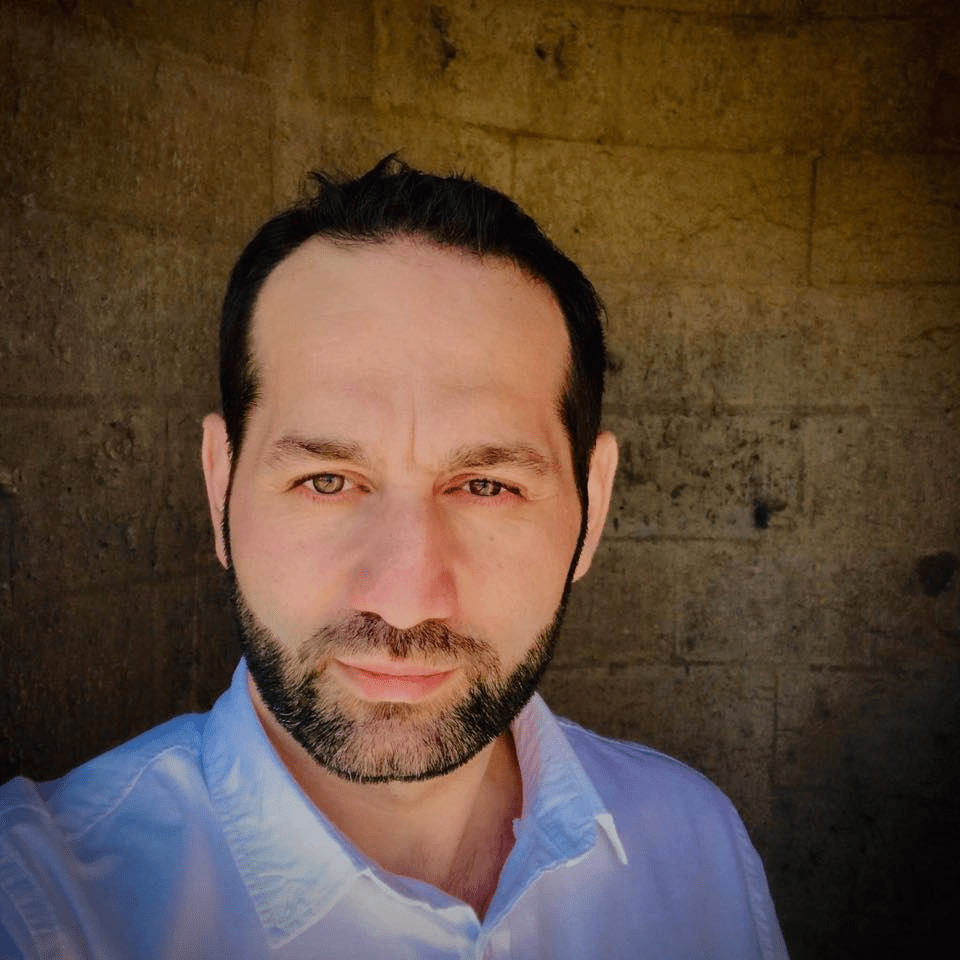
Cristian Padure
He is a Roma silversmith and assistant professor at the Faculty of Foreign Languagesand Literatures, University of Bucharest, Rromani department where he teaches the practice and structure of the Rromani language. He is also a pre-university Romanian teacher at a rural school. He chose the career of a teacher precisely to be with the Roma students in their professional and personal journey because he knows how important it is to have support in this regard, he in turn having a very difficult educational path due to lack of support from family on the one hand, but also due to the marginalization based on ethnic criteria that he had in the educational space. In order to come to Romania to work with Roma children and young people, Cristi gave up a university career at the Institute of Oriental Languages and Civilizations (INALCO Paris) where he completed his doctorate in linguistics, considering it very important to offer his experience, professional and educational, to the community to which it belongs.
Elena Garofița
She is a social worker and works with Roma communities in France, in the Paris area, especially with migrants. She, in turn, is a Roma from Romania and went to France to work as a social worker in the relationship with the Roma in Romania because she knows how difficult it is for them to integrate both in the labor market and in the educational or social system, having need of support in this regard. Especially support from a person who knows the language, culture but also the problems of the emigrant communities in Romania. Garofița has been working in this field since 2017 and before arriving in France she graduated from the Faculty of Social Work and a master’s degree in the same field at the University of Bucharest.
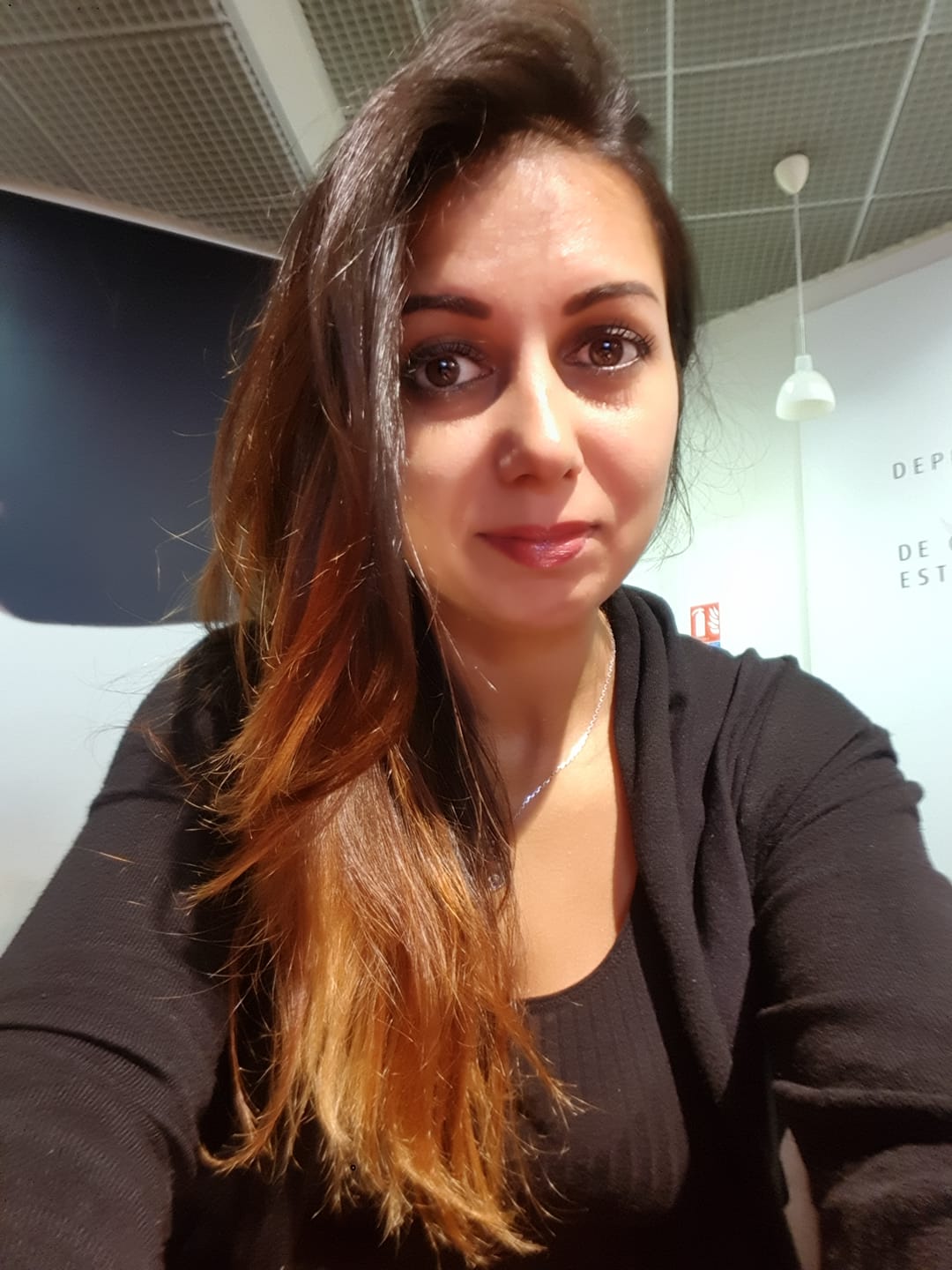
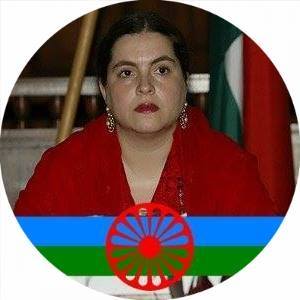
Delia Grigore
She is an ethnologist and lecturer at the University of Bucharest, Faculty of Foreign Languages and Literatures, Department of Romanian Language and Literature. Delia is also the president of the “Amare Rromentza” Roma Center Association, an association whose main purpose is to promote Roma cultural identity rights and she is a well-known activist in the field of Roma identity education.
She published «Babel.ro. Young Minority Poets »(10 poems in Rromani language and translated into Romanian language), Status Publishing House, Miercurea Ciuc, 2000; Introduction to the study of the elements of traditional culture of contemporary Roma identity – course of Roma folklore and anthropology, University Publishing House – CREDIS, Bucharest, 2001; Rromanipen – Fundamentals of Romani culture, Amare Rromentza Publishing House, Bucharest, 2011; Contemporary Roma identity – between ethno type and stereotype, Amare Rromentza Publishing House, Bucharest, 2017. In all these works she talks about how important it is to promote, respect and value the Roma cultural identity in public because only then can we have a fair society in which the cultural rights of each people are taken into account and individuals can feel relaxed about their identity. She, in turn, supports her students to become individuals who fight for their cultural rights and who succeed professionally by assuming their ethnic identity in a balanced way even if she is aware of the difficulty of this path.
Crina Mureșeanu
She has been working as a social worker for 3 years and has been a Roma rights activist for over 20 years. The Roma non-governmental environment is the one in which she trained as a person and as a professional, offering her various professional and educational opportunities. She graduated from the Faculty of Social Work at the University of Bucharest and has a PhD in Public Policy Rome at SNSPA. At first it was not easy for her to adapt as a social worker, being a different field from the non-governmental one, but along the way she realized how important it is for the social worker to know the experiences and cultural specifics of the community she works with. Crina considers it a plus that she is Roma and works in a field where she can help even Roma people who need social support because she can give them the support they need by understanding their needs in a different way than her non-Roma colleagues. Crina also says that it is very important for the social worker to receive training in the Roma cultural field if she works with Roma people because that is the only way she can really understand their needs and provide them with adequate support.
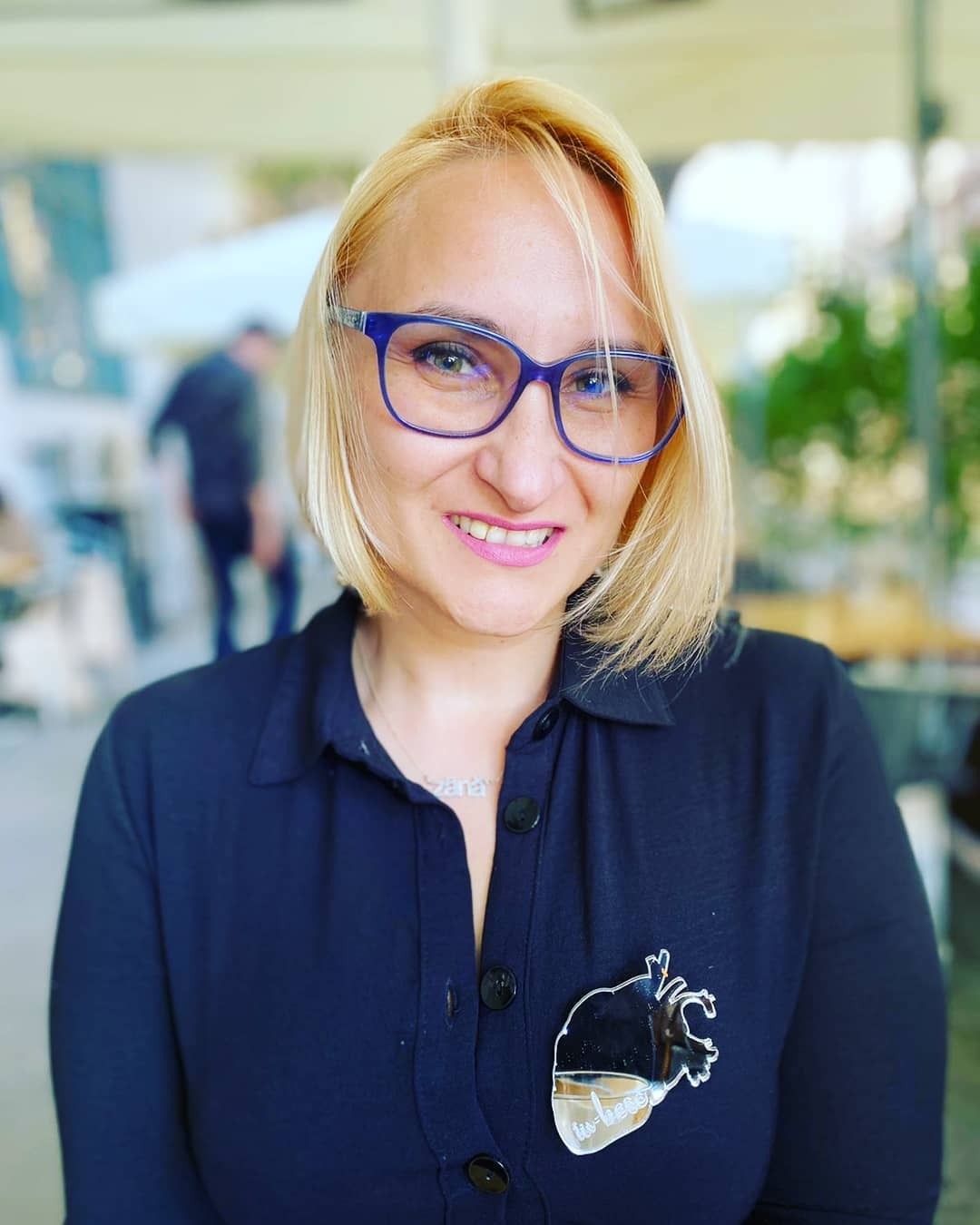
Ionuț Petaca
Ionuț Petaca is a third year student at the Faculty of Foreign Languages and Literatures, Rromani-Hindi section.
Studying the Rromani language has already become a tradition in Ionuț’s family, so this motivated him more to choose this specialization in college, especially since Ionuț had also great results in Rromani language contests in high school and middle school.
Ionuț has an “extraordinary” relationship with his colleagues, as he calls it, maybe also because he identifies with them through common values and interests, but also because he feels among his own people. More than that, he had the opportunity to see the dialectal diversity of the Romani language through the connection with his Roma colleagues who came from different Roma branches. On the other hand, however, he felt distance and superiority from the other colleagues in the faculty, this meaning that rejection and discrimination are also present at the academic level.
At the same time, Ionuț is a Romani language teacher in his community. It has not always been easy to persuade parents to enroll their children in Romani classes, also because, unfortunately, the negative image of society about Roma ends up influencing Roma parents too, who end up not regarding Romanian language, history and culture as something valuable that must be studied in school. But Ionuț did not give up and invited the parents in school for Roman demonstration classes, just so that they could see with their own eyes how many wonderful things they can learn and the benefits that learning Roma language, history and culture can bring to the educational and personal development of their children. Related to this aspect, Ionuț also emphasizes the importance of the teacher who knows the Romani language, especially in classes with young children who know the Romani language from home, better than the Romanian language, and thus the teacher can understand them, can approach them and can create a relationship with them.
Ionut also gets involved in the social life of the community, keeping in touch with Roma associations at the local level, but also with the authorities, even organizing events, such as those for the celebration of International Roma Day.
Ionut always assumed his ethnic identity in school and was respected for this, both by his colleagues and by his teachers. He understood that it is important to identify with what you are and to assume this also publicly. Maybe that is why his teacher approached him in a particular way and managed to understand him and be a real support. She was open with him and he gained confidence in approach her. We can see from this example how important is a teacher who also assumes the role of mentor and tries to support students more extensively, even outside the subjects they teach.
At the same time, Ionuț is also enrolled in the Sports Faculty where he learned that teamwork is very important and that everyone’s contribution is essential, regardless of social status, the way you look or the ethnicity you belong to.
Ionut Stanciu
Ionut Stanciu graduated from the Faculty of Foreign Languages and Literatures, specializing in Romani-Romanian. He really wanted to become a teacher, being inspired by his teacher from the primary school, whom he admired and looked at her as a mentor. It was not easy for him, however, being often discouraged by colleagues and even other teachers. But he fought for his dream and now teaches Romani language in a school where Roma students are the majority.
He was supported by his parents to go to college and now they are very proud of his achievements. The Roma community was also close to him, supported him and admired him, being now an example and a source of inspiration for the young generations.
In high school he was in a segregated class, which affected him in his relationship with the majority of students and even later in high school when it was difficult for him to integrate. Here we can see again the importance of class desegregation and balancing them so that different groups interact and get closer from a very young age.
Ionut felt discriminated also in college, even from the beginning, when his colleagues found out that he had occupied one of the special places reserved for the Roma minority. From this reaction we realize that the younger generations do not realize the importance of affirmative measures for the Roma, due to a major historical and social gap, in which Roma Slavery and the Holocaust play an important role.
Discrimination extended to the relationship with the teachers, feeling that a number of Roma students were disregarded and disadvantaged both in class and in exams. Unfortunately, they did not have a mentor to support and guide them, and in the end they could not do justice to themselves, remaining rejected and treated with inferiority.
Looking at the relationship with his colleagues, he got closer to his Roma colleagues, with whom he felt he could share common values, and less to the other colleagues in the faculty, whom he felt he viewed with superiority.
Ionut is also very active in extracurricular life, taking part in several protests against injustices against Roma, being present even online, where he posts videos about Roma history and traditions, about the Romani language, or about how important it is to distinguish between the words Roma and Gypsy or why we need to use the term Roma and not the other one.
However, Ionut also had a time when he did not feel good in his skin and it was not easy for him to assume his identity, he was ashamed and afraid, he was confused and he did not know how to handle this whole situation. But since he studied the Romani language and the history and culture of the Roma, he feels that his self-esteem has increased and he sees this very clearly through his desire to tell everyone that he is Roma and that it is wonderful to be Roma and identify with a series of value preserved for many generations. In this way Ionuț manages to reconstruct his ethnic identity and to discover his own potential.
Lavinia Epure
Lavinia Epure graduated from the Faculty of Foreign Languages and Literatures, specializing in Romani-Romanian languages. She was supported and encouraged to continue her studies, especially by her father, who insisted that Lavinia and her siblings go to college and thus demonstrate by their example that young Roma can successfully complete school and develop professionally.
She comes from a traditional family, which preserves some of the traditions and customs of the Roma, including the Romani mother tongue. In her relations with his dormitory colleagues during the college, it was difficult for her to admit that she came from a Roma family, being afraid of rejection and marginalisation. Finally, when she shared her story with her colleagues, they were reluctant for a while, taking time to get closer and establish a relationship.
Lavinia also graduated from Social Work Faculty and worked as a school mediator. In the first 2 months she wanted to give up due to the conflicting relationship with the school management and also because one of the teachers who always had negative remarks about Roma students. She had to intervene and mediate the relationship between the Roma students and the teacher. An important factor was that Lavinia came from a Roma family with common values and principles to those of her students, so she quickly managed to establish a relationship with them, understood them from within and was able to find solutions to remedy the students’ relationship with the teacher. Even the children’s parents became attached to Lavinia, coming to her to discuss aspects of their personal life, such as their financial situation or housing issues, which were directly related to the children’s progress in school.
She participated in events and demonstrations for the defence of Roma rights, especially because she realized that it is important for someone within the Roma community to react on this topic. She also thinks that there is a responsibility especially for Roma students and young people who have the opportunity to intervene.
Lavinia felt a strong need for a mentor, a person, even an older student, or a teacher to represent and defend their interests. At the same time, Lavinia emphasizes the importance of the ethnic aspect in this relationship, having the opinion that a Roma mentor would be able to understand them better and find easier solutions in accordance with their needs.
Florica Alecu
Florica Alecu has been a teacher in Roma communities for 25 years, because she identifies as herself in those schools and feels that ” that is her world.” From the first interactions, the children looked at her with admiration. The girls even wanted to dress like her and all the students regarded her as a model, being proud to have a teacher who looks like them.
She grew up in an area populated by Romanians, so she always felt that she had to prove that she could do more, so she did not confirm the negative stereotypes about the Roma. She had to do this being afraid of disappointing the others and not being rejected. It was the same at school. She had to work twice as hard to be perceived positively by colleagues and teachers. However, she remained an exception, in contrast to other Roma students who were perceived as not being able to overcome their condition.
In her childhood and youth she did not speak publicly about her ethnic identity, especially during the communist period, but she felt she had an complex of inferiority and always felt pressure from others and tried to compensate each time with additional study or extra tasks.
When she became a teacher, she also assumed the role of mentor and often mediated the students’ relationship with the management and with the other teachers. The students gained confidence and came to her when they had a problem, and they accepted her support and guidance. One thing that mattered in all this is that Mrs. Florica began her professional life as a school mediator, participating in a series of training courses in this regard. After that, she graduated from the Faculty of Education and a Master of Studies in Rome. She still believes in continuing education, both for her and for her colleagues in school, including specialized courses that help the teacher in the daily classroom activities. That is why he believes that other teachers in the school should also attend training courses on Roma history and culture, because many of them do not know fundamental elements of Roma history and culture. This lack of knowledge can prevent them from understanding in depth the situation of Roma children and can lead to a real barrier in establishing a relationship with them.
She considers that intercultural activities are also very important and that is why she has included in the activities with students elements of Roma history and culture. This component has brought a real change in the school and personal development of students, including in terms of increasing their self-esteem. But he believes that this responsibility should be taken over by the responsible authorities and institutions, so that these individual initiatives become a public policy that is consistently applied at the national level.
Throughout her educational and vocational training, she was mentored by her older brother, who gave her attention and time and who always supported and guided her, sometimes even financially supporting her, so that she could concentrate on study and not be forced to take a job during school.
Now, after 25 years of hard work, with many sacrifices and efforts, she considers that she has “proved” enough for her, but her fight does not stop here, because she had to move her battlefield to the education of her daughter, who faces discrimination and has to fight every day, just like her mother, for fairness and equal treatment in relation to her schoolmates, teachers and society as a whole.


